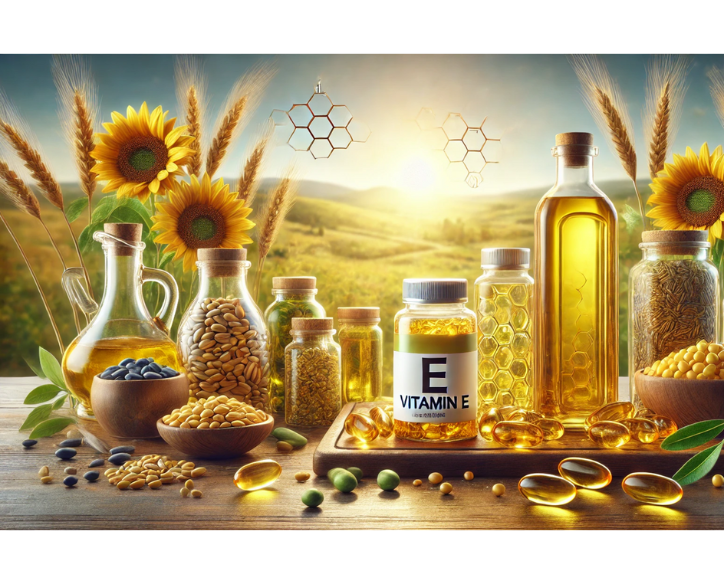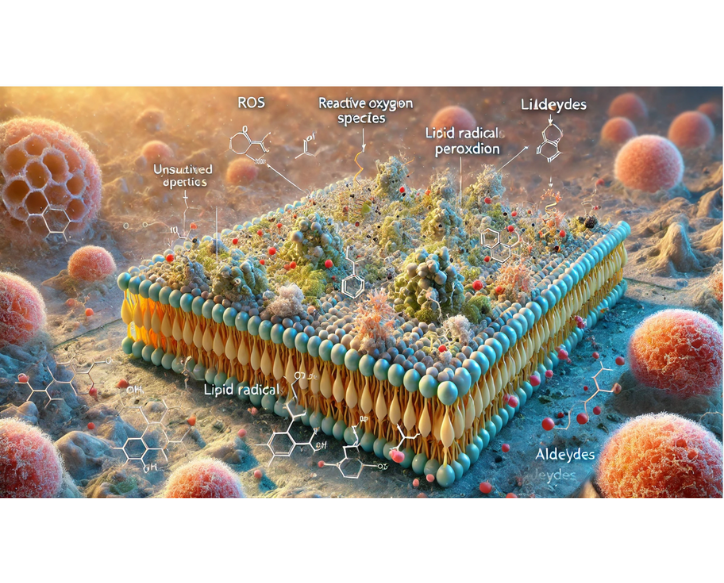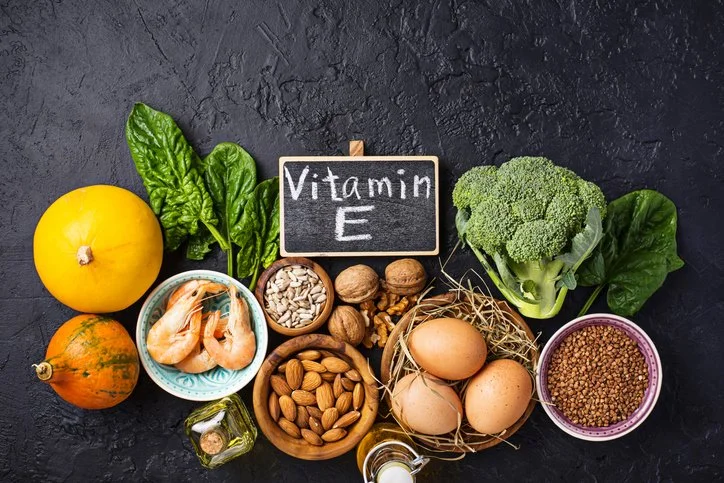The Long-Term Risks of Vegetable Oils: What Studies Miss
The Hidden Danger of Lipid Peroxidation
The ongoing discussion about diet and health often includes a critical and contentious topic: the role of vegetable oils in chronic diseases. These oils, which are high in polyunsaturated fatty acids (PUFAs), are commonly found in modern processed foods. However, increasing evidence, including insights from Chris Masterjohn's detailed analysis, suggests that these oils may be linked to heart disease, cancer, and other illnesses. Interestingly, it may not be the PUFAs themselves that are the sole culprits; rather, it is their interaction with vitamin E that could delay the onset of these diseases, making the connection less obvious. This post aims to clarify the relationship between lipid peroxidation, vitamin E, and the long-term health effects of consuming vegetable oils, simplifying a complex but important topic.
Vitamin E: The Unsung Protector
Vitamin E plays a crucial role in neutralizing free radicals that contribute to lipid peroxidation. In the short term, consuming vegetable oils can increase vitamin E levels, which may temporarily reduce oxidative risks. However, vitamin E has a shorter half-life compared to polyunsaturated fatty acids (PUFAs). As PUFAs accumulate in tissues over the years, the supply of vitamin E diminishes, reaching a tipping point where oxidative stress can cause significant damage.
This dynamic explains why early results in studies on vegetable oil consumption often seem benign or even beneficial. For instance, the initial cardiovascular benefits observed in some trials are likely due to the temporary protective effects of vitamin E. However, as noted by Masterjohn, once the balance shifts, long-term studies show an increase in cancer and overall mortality rates linked to lipid peroxidation.
The Delayed Onset of Harm
The delayed effects of vegetable oils are most evident in long-term studies like the Minnesota Coronary Survey and the LA Veterans Administration Hospital Study. These trials indicate that although seed oils may initially seem to reduce cholesterol levels and cardiovascular risks, their protective benefits diminish over time. After several years, increased rates of cancer, liver disease, and non-cardiovascular deaths are observed in the groups consuming seed oils.
This delay highlights why short-term studies can be misleading. Chronic diseases, such as cancer or nonalcoholic steatohepatitis (NASH), can take years or even decades to develop. By the time symptoms appear, it can be difficult to link them to dietary seed oils and the related process of lipid peroxidation.
Frying Oils: Should Tallow Make a Comeback?
You may have heard that some restaurants are already making the switch. Switching from seed oils to animal fats, like tallow, for frying is a straightforward solution, but it comes with some considerations. Tallow is less prone to lipid peroxidation in the body, which reduces the risk of oxidative damage. However, repeatedly heating any fat during frying can still lead to oxidation. Interestingly, some studies suggest that soybean oil is more stable than tallow under these conditions.
One potential advantage of tallow, particularly from grass-fed sources, is its naturally higher vitamin E content. Additionally, incorporating antioxidants into frying oils could further enhance their stability and health benefits. As Robert F. Kennedy Jr. encourages a return to traditional fats, targeted research could help identify the safest and most effective frying oils for general use.
The Vitamin E-PUFA Balance and Public Health
The relationship between polyunsaturated fatty acids (PUFAs), vitamin E, and oxidative stress provides a complex understanding of dietary fats. It clarifies why some studies may have downplayed the risks associated with vegetable oils: the long-term effects are gradual and depend on intricate interactions between diet, lifestyle, and the aging process.
. Additionally, aging itself increases the burden of oxidants, making it harder for vitamin E to offer its protective benefits. In light of modern lifestyles, where oxidative stress levels are often high, the consumption of vegetable oils is particularly concerning.
Toward a Healthier Future
The evidence against vegetable oils continues to grow, highlighting an opportunity for change. By moving away from diets high in polyunsaturated fatty acids (PUFAs) and focusing on whole, unprocessed foods that are rich in natural antioxidants, we can lower our risk of chronic diseases. Traditional fats, such as tallow from grass-fed sources, offer a promising alternative if used thoughtfully and in moderation.
As the movement to "Make America Healthy Again" gains traction, it is essential to understand the impact of lipid peroxidation and the role of vitamin E. These insights can inform policies, guide research, and influence individual choices, ultimately leading to a healthier future for everyone.






